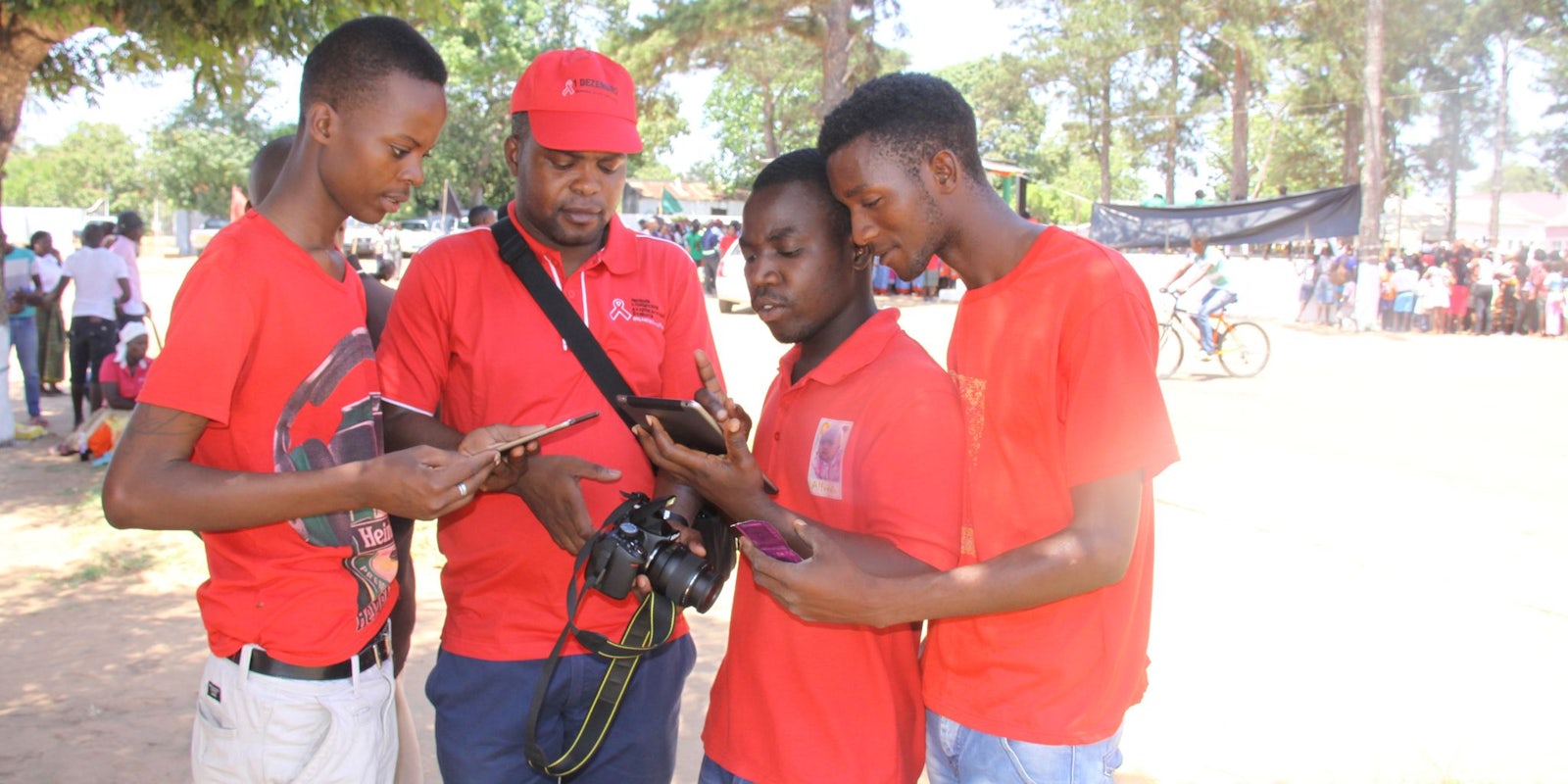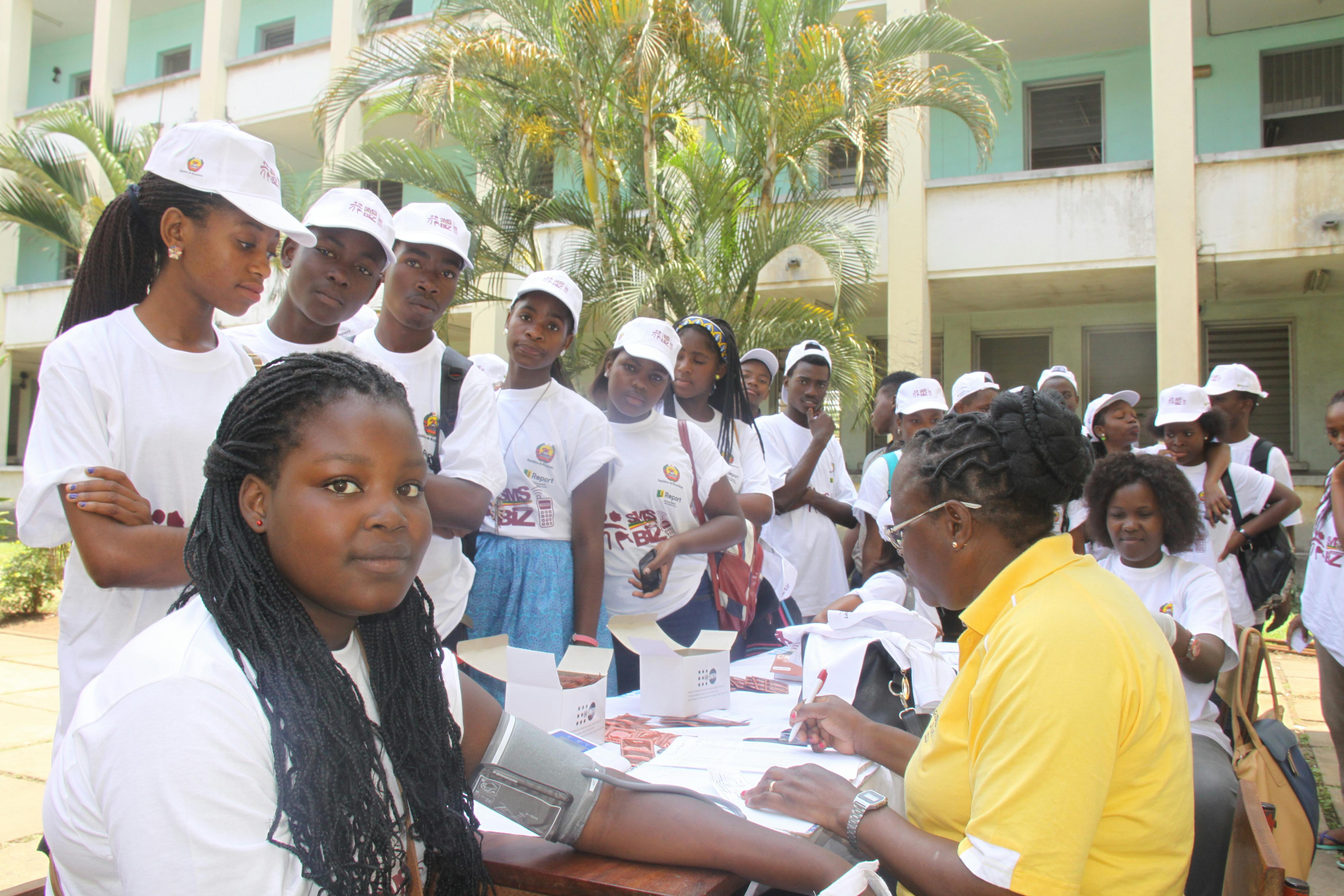Teens in Mozambique with questions about sexual health and HIV can turn to an expert in the same way they communicate with friends or family. A text messaging platform in the African country answers questions young people have about sex and relationships, destigmatizing curiosity about reproductive health.
UNICEF, in partnership with Youth Association Coalizão, the United Nations Population Fund, and the Mozambican government, launched SMS Biz in October 2015; it’s now available in five provinces and boasts over 38,000 users. SMS Biz is built on U-Report, the Ugandan text-based social platform that monitors communities and engages with members about health, education, and sanitation.
Twelve counselors answer questions on the free service. They are members of the youth association between 15 and 24-years-old, the target age group for the text service. (Sixty percent of users on SMS Biz are ages 15 to 19, and 27 percent are ages 20 to 24.)
In Mozambique, 11.5 percent of people ages 15 to 49 are HIV-positive, according to the World Health Organization, and 90 percent of HIV infections are transmitted through sex.
SMS Biz began with eight counselors who staffed the messaging system during the week; explosive growth required the platform to add more counselors and operate on the weekends, too. Staff is trained on how to answer questions and engage with clients thoughtfully, and is monitored by supervisors at all times. If counselors receive reports about sexual abuse, they refer users to a crisis helpline. Counselors are either students or young professionals, and receive a small stipend for their work.
The platform is fielding 400 questions each day, and collects anonymized data about health concerns based on the questions users ask and weekly polls conducted by the service. Data is aggregated and published to illustrate the knowledge and understanding young people have about sexual health and HIV, while providing insight for organizations to better serve communities.
Some of the data surprised aid groups.
“We thought that in urban areas at least knowledge about how to prevent yourself from getting infected or how pregnancy works, was more or less already clarified,” Massimiliano Sani, communication development specialist at UNICEF Mozambique, said in an interview. “But actually we discovered through the type of questions they are sending to the counselors, there are still a lot of misconceptions and lack of knowledge on these issues.”
SMS Biz is an approachable way for teens and young adults to speak with a peer anonymously, a more comfortable alternative to discussing issues with a parent, guardian, or health worker.
To sign up for the platform, users submit their age, location, and gender, and must answer questions regarding issues like HIV and sexual health, gender equality, and gender violence before they can engage with a counselor.
“We got a lot of messages of appreciation for this initiative, because adolescents feel they have someone with whom they can talk, which is close in the sense it’s just an SMS away, but it’s completely private and this counselor won’t judge them for their questions,” Sani said. “If they say they are already having sexual intercourse, and even sometimes they failed in using condoms, they won’t receive a typical judgement they might receive when they go to health facilities and talk to nurses, or if they talk with parents, which usually doesn’t happen.”
Questions to counselors aren’t limited to sexual health—often people ask about puberty, relationship advice, and child marriage. According to the International Center for Research on Women, 56 percent of girls in Mozambique are married before they are 18-years-old. Sani said this issue has become a particularly popular topic on SMS Biz over the last few months; in April, Mozambique launched a national campaign to end child marriage.
Text messaging is an easy way to target individuals with crucial information in an informal way, especially in areas with feature phone ubiquity.
In Zimbabwe, EconetHealth is an SMS-subscription service that sends alerts to people who sign up to receive information about specific health issues, like malnutrition or pregnancy. U.S. text hotlines are also helping youth by connecting them to volunteer counselors in times of crisis.
Sani said he expects the platform to reach its pilot goal of 50,000 users by the end of the year, and will be able to expand to the national level, where it can potentially make an even bigger impact.



